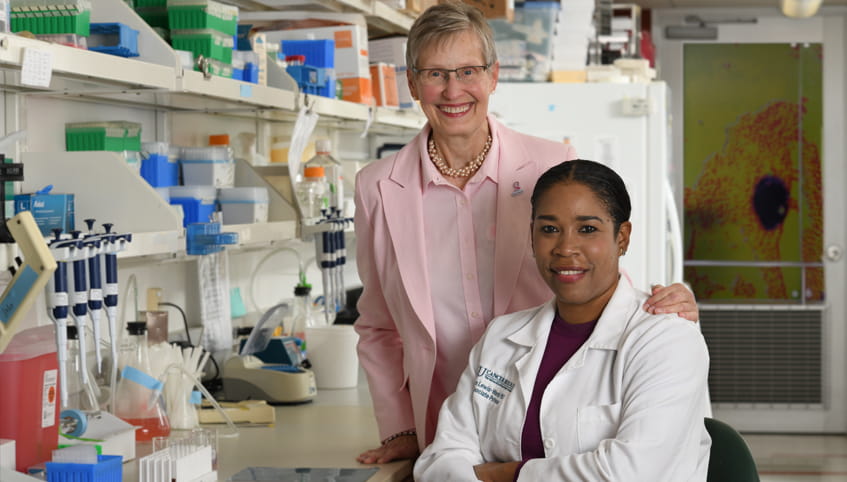- Home
- Research
- Give Back to Research
- PIVOT Patient Research Advocacy Program
- For Researchers
Patient Research Advocacy
Your Research: How PIVOT Can Help
The University of Kansas Cancer Center’s program, Patient and Investigator Voices Working Together, PIVOT for short, links scientists with patient research advocates to ensure the patient perspective is represented in their research projects. PIVOT offers a variety of tools to support researchers in their endeavors.
PIVOT Rapid Reactor Team
The PIVOT Rapid Reactor Team (RRT) is an effective way for cancer center researchers to gain immediate patient-centered feedback in a semi-structured, conversational setting. These collaborative sessions offer an opportunity to build relationships with trained patient partners and deepen researchers’ understanding of the patients their research seeks to serve.
The RRT can provide feedback during any phase of a research project – before being submitted for funding consideration, before an approved study begins, during a study when patient feedback could be helpful in achieving a project’s aims; and/or in preparing for the dissemination of research results.
From a patient-focus perspective, the RRT can help:
- prioritize research topics,
- hone research questions and strategy,
- enhance the study’s relevance to patients and their communities, and
- strengthen recruitment and retention efforts.
They can also help make summaries and information about the results meaningful and interesting to patients and communities. They can help focus dissemination plans to increase public awareness and understanding of the study’s results. The PIVOT RRT will advise and respond to the researcher’s patient research advocate requests. These could include a letter of support, engaging an individual research patient partner(s) or other requests for assistance.
How does it work?
During a PIVOT RRT session, the researcher/research team will give a ten-minute presentation about their project and outline their specific request of PIVOT patient research advocates. After the presentation, the researcher will hear the reaction from the PIVOT RRT members and answer questions (50 minutes). The RRT is facilitated by a PIVOT staff member with up to eight patient research advocate participants.
Dates and times are scheduled with the PIVOT program manager upon request. Researchers are asked to schedule their session three weeks in advance to provide adequate time to recruit RRT members and allow PIVOT leadership to assist the researcher with their presentation.
To learn more about the PIVOT Rapid Reactor Team or schedule your session, email PIVOT@kumc.edu or call 913-945-6622.
Sharing my research findings during the RRT session helped me see how my research may benefit patients. It also gave me the opportunity to refine/redefine my research questions based on insightful feedback from PIVOT. Joan Lewis-Wambi, PhD, KU Cancer Center Researcher

Education and Tools
PIVOT offers training to investigators, facilitation support for patient and community meetings, as well as resources that improve two-way communication between research teams and participants.
Advocate ↔ Researcher Working Together Toolkit
This toolkit was created by Susan G. Komen's Advocates in Science (AIS). With Komen’s permission, PIVOT adapted the toolkit for use at The University of Kansas Cancer Center. Additional content was developed and added by The University of Kansas Medical Center. The purpose of this toolkit is to assist researchers and advocates seeking to work together on research projects. Contents of the toolkit include:
- Guidelines for advocate involvement
- Patient Advocate Involvement Plan Letter and bio templates
- Additional resources to promote cohesiveness
Connect and Match Researchers with PIVOT Partners
PIVOT has over 130 members from across the KU Cancer Center catchment area, who are available to work with cancer center researchers. PIVOT research partners come from varied experiences with many cancer types and are diverse in race, ethnicity, age, gender, urban/rural residence, experience with healthcare and education.
Contact Tonia Yelder at 913-945-6622 or PIVOT@kumc.edu to connect with a patient research advocate.